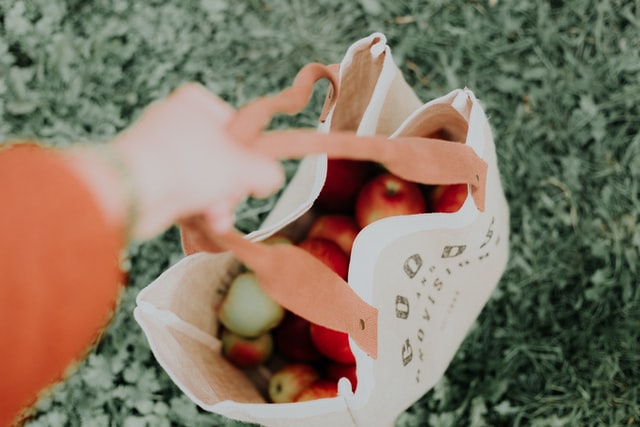Global warming and environmental issues are not just buzzwords; they are problems almost everyone is concerned about today. And rightfully so, the number of waste people produce each day is tremendous.

Luckily, almost anyone can implement small changes in their routine to do better, even students living in a dorm. As a student, you might feel like buying eco-friendly supplies is expensive and complex, but it’s not true. There are plenty of affordable options out there. And in many cases, living sustainably is not about buying more but rather about finding the best options out there. But what if I don’t have time to research all of this? You might ask. Who will write my research paper for college while I’m busy with biodegradable or organic supplies? Do not worry! There are plenty of services that can help you with any type of college assignment.
Anyone deserves a rest from endless essays and research papers. And this guide will get all necessary eco-friendly supplies covered. After all, college life is hard enough with huge curse loads and many responsibilities. Choosing eco-friendly living should not be adding up to this burden. It is understandable that students often live on a budget and cannot afford expensive things. However, choosing more energy- or water-efficient supplies can save money as a result.
Now let’s talk in detail about house items by categories.
Cleaning Products
Green cleaning products work not as fast as harsh chemicals, but they also do not have such a harmful impact on your health and nature. Chemical cleaners release a lot of toxic elements into the environment, which results in water pollution. So going for natural products is much better in terms of staying healthier.
Instead of using synthetic sponges, it is better to choose organic and reusable cloth. Skoy is a great brand to look for such material. Or you can wear an old T-shirt as well, which is a free option students might appreciate. Instead of throwing away old fabrics, you can use them as cleaning cloth.
Laundry detergents can contain lots of chemicals that end up in bodies of water. Buy organic ones instead—from Method, for example. They have plant-based ingredients and are hypoallergenic. The packaging of Method is eco-friendly as well—it’s recyclable and made of 100% PCR.
Groceries and Kitchen
What about the kitchen items and grocery shopping? It can also be much more sustainable with a bit of effort.
The first rule is to not use plastic bags when shopping. Some shops even have reward policies for those who come with their own bags. One can buy reusable grocery bags like the ones from Baggu. But, there is an even cheaper alternative—take your backpack with you. The one you use for college or traveling. It can fit all the groceries perfectly, and you do not get to spend a dime.
Also, avoid single-use plastic bags for vegetables or fruit. You can just not use them at all or come with your own paper wrappers. For instance, Bees Wrap is a beeswax wrap for food made out of cotton. It is efficient and natural.
As for the kitchen items, buy non-plastic meal containers and multi-use cutlery, especially if you’re planning a party. MealPrep offers reusable glass products. They will serve for a long time and release zero microplastic into your food.
The next step is biodegradable trash bags—look for certified ones. Choose organic dish towels made from cotton or bamboo instead of paper ones. They are reusable and sustainable.
If you need to use single-use cutlery for a picnic or a student party, opt for biodegradable things, such as FirstChoice.
Cups and Water Bottles
Plastic bottles are a huge contributor to environmental pollution. The best way to make your impact is to use a reusable water bottle. Just take it with you and refill it when needed.
Another contributor is coffee cups. Almost no student can go around their day without a cup of coffee. But there is no need to contribute to all the waste single-use cups and lids produce. Just take your reusable cup with you—the majority of coffee shops are pretty okay with that.
Here are some products to try:
- Stainless steel water bottles from Hydro Flask;
- Glass water bottles from Origin;
- Glass coffee cup to take with you from JOCO;
- Thermo coffee cup from Hydro Flask;
- Silicone coffee cup from ROCONTRIP.
Efficiency Home Supplies
Another way to live greener is to make your home energy- and water-efficient. Consuming less electricity and water is not only sustainable but also will save you money. The bills will go smaller, so it is worth investing in.
Simple tips include adjusting the thermostat, unplugging items when not needed, and avoiding overconsumption.
Here are some things that help with that:
- LED light bulbs. They are much more efficient and use less power;
- A water-saving showerhead will also reduce your water bill as well as water consumption. (by brands like High Sierra, Niagra, and Nebia).
- Power switch that saves energy;
- Solar-powered phone charger;
- Rechargeable batteries.

Clothes and Shoes
There are many options when it comes to wearing sustainable clothes and shoes. We all know that fast fashion is a huge problem that contributes to environmental issues. However, not everyone can opt for expensive and ethically produced clothes. It is tough for students that need to be reasonable with their finances.
What can you do? First of all, consider thrifting. Whether you go to a thrift store or thrift online, there are many great and well-made options out there. And they often help to stay on a budget.
Secondly, upcycle what you have. Make small adjustments to clothing or add accessories to make new outfits.
The third option is wardrobe swap—exchanging items with friends, relatives, or people online.
If you are looking into making your shopping experience more sustainable, here are some ethical clothing brands:
- Allbirds (their shoes are produced from wool and tree fiber);
- Rainbow Sandals (made from hemp);
- Everlane;
- PACT clothing essentials (the company supports better trading conditions and fair wages, especially for marginalized employees, and their underwear, leggings, hoodies, and T-shirts are long-lasting);
- Recover Brands (produces clothing entirely out of recycled materials).
When looking for new clothes, always check what they are made of. Try to go for all-natural materials—wool, cotton, bamboo, etc.
Natural Toiletries
Using natural ingredients for things we use is wise, not only from an environmental point of view. It is also much better for the skin and overall health.
For example, lots of the face or hair masks can be done with natural ingredients in your fridge anyway. One can also opt for natural shampoo, conditioner, vegan soap, or organic toothpaste.
Try to buy recycled toilet paper and organic toothbrushes, for example, a bamboo one.
In Summary
Living greener means being more cautious about the products you use and how you use them. The secret is in choosing healthier material and organic ingredients, as well as reducing plastic use.
